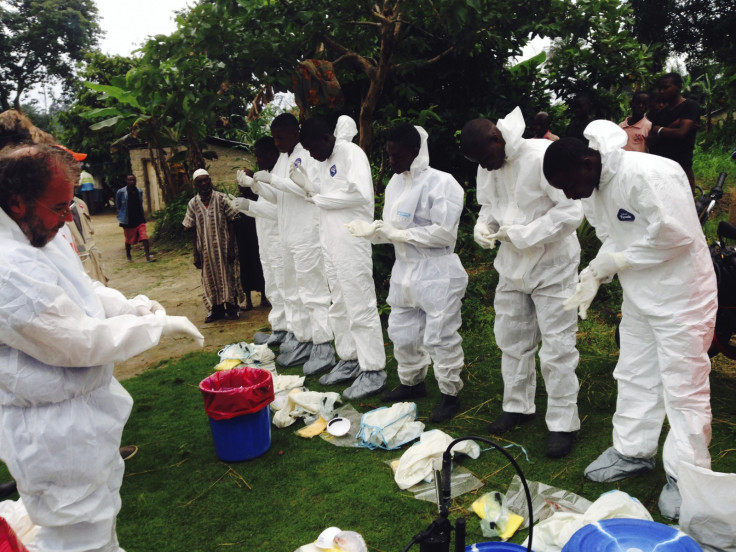Ebola Outbreak: Liberia Declares Emergency and Deploys Army at Checkpoints

Liberia has declared a state of emergency and its president has said the nation now requires extraordinary measures for the very survival of the state and protection of lives, as it struggles to cope with the rising death toll from Ebola.
President Ellen Johnson Sirleaf said, "The scope and scale of the epidemic, the virulence and deadliness of the virus now exceed the capacity and statutory responsibility of any one government agency or ministry.
"Ignorance and poverty, as well as entrenched religious and cultural practices, continue to exacerbate the spread of the disease."
The World Health Organisation announced on Wednesday that 932 deaths had been reported or confirmed as a result of Ebola haemorrhagic fever.
As part of the emergency, Liberia has deployed the army to implement controls and isolate severely affected communities in an operation code-named "White Shield".
The information ministry said that soldiers were being deployed to the rural counties of Lofa, Bong, Cape Mount and Bomi to set up checkpoints and track residents suspected of contact with victims.
Residents are panicking and in some cases casting out bodies onto the streets of Monrovia to avoid quarantine measures, officials said. St Joseph's Catholic hospital in Monrovia was shut down after the Cameroonian hospital director died from Ebola, authorities said.
Six staff have tested positive for the disease, including two nuns and 75-year-old Spanish priest Miguel Pajares, who will be repatriated by a special medical aircraft.
"Everyone is afraid of Ebola. You cannot tell who has Ebola or not. Ebola is not like a cut mark that you can see and run," said Sarah Wehyee, as she stocked up on food at the local market in Paynesville, an eastern suburb of Monrovia.
Many hospitals and clinics have been forced to close across Liberia as health workers are scared of contracting the virus. Some locals continue to believe the outbreak is part of a government conspiracy.
"This is the biggest and most complex Ebola outbreak in history," Dr Tom Frieden, director of the US Centers for Disease Control and Prevention, said. Putting an end to the Ebola outbreak will "take many months, and it won't be easy, but Ebola can be stopped," he said. "We know what needs to be done."
The CDC also said the drug will not become available for patients in West Africa. "The product is still in an experimental stage, and the manufacturer reports that there is a very limited supply, so it cannot be purchased and is not available for general use," the CDC said.
Hundreds of troops have been deployed in Sierra Leone and Liberia to quarantine communities hit by the deadly Ebola virus, as the death toll from the worst-ever outbreak reached 887 and three new cases were reported in Nigeria
Meanwhile, responding to experts who called for the drug to be made available to African workers, US President Barack Obama said "we've got to let the science guide us." He added that the illness can be controlled and contained very effectively by using the right protocols.
"The countries affected are the first to admit that what's happened here is the public health systems have been overwhelmed. They weren't able to identify and then isolate cases quickly enough. "As a consequence, it spread more rapidly than has been typical with the periodic Ebola outbreaks that occurred previously," the president said.
He said that the US was working with Europe and the WHO to provide resources to contain the epidemic.
© Copyright IBTimes 2025. All rights reserved.





















